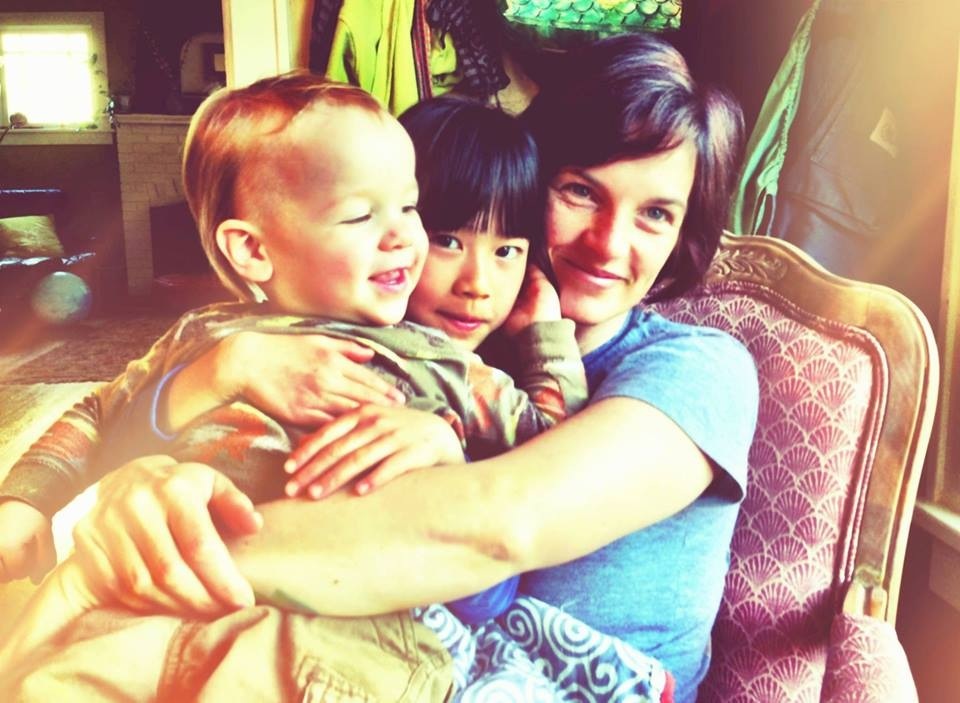My son and daughter love superheroes, and often ask their papa for a “superhero quiz.” The kids get very into them. One night, on a whim I said, “Hey, does anyone want to do a nutrition quiz?” And guess what? They were totally down for it!
I asked about the food on their plate. Here are a few examples:
“Is this broccoli a fat, a protein or a carbohydrate?” Answer: “carbohydrate.”
“How does our body use protein?” Answer: “Building strong muscles.”
“What is fat good for?” Answer: “Our brains.”
“What are carbohydrates good for?” Answer: “Helping us run fast and far.”
Of course there are many correct answers for questions like these, so start with whatever you know to be true. If the kid(s) ask nutrition questions that stump you, look it up together! I’m not a huge fan of devices at the table; try having a paper and pen to write down questions for after mealtime.
If you show excitement about nutrition – especially if you start at a young enough age – you’re going to take advantage of the fact the kids love to learn. This may increase the chances they’ll grow up with an interest in healthy eating and knowledge of their bodies. This is priceless, and will serve them well in life, I promise you!
Thoughtful Steering
I try my best not to talk about “good food” and “bad food” with kids; these terms can be correlated with feelings of guilt or shame, at present or later in life. The mere existence of eating disorders makes me want to steer away from those labels. When talking about sugar for example, I may say something like: “Sugary sweets can be pretty tasty once in awhile, and they also give us quick energy, but too much sugar doesn’t really do great things for our bodies, like build strong muscles and bones, or help our brain to grow. That’s the job of fruits, vegetables, nuts, seeds, meats, things like that.” Most kids are exited to run fast, grow strong and learn new things, so the concept of “food as fuel” is a great one to teach early on. You can work it into the conversation.
Pre-treat with Protein (or veggies)
Eating protein, vegetables or a fat before a sugary treat may help with glucose and insulin levels. “Before your treat, should we have carrots-and-hummus, or some avocado and cracker?” Younger kids don’t need this information yet but it’s helpful for you to know. I’ve observed less of a high – followed by a crash – in my kids if they have a healthy snack before a treat. Same goes for adults. Since we’ve started having fun with nutrition, my 5-year-old often asks for protein before a treat; it’s pretty cool!
Set for Success
When we put food on the table it’s healthy and balanced; rarely do our kids get special “kid food.” However, I do try to set them up for success. An 11 and a 5-year-old don’t love a ton of spices, sauces or mixed-up food. They love simple and tender meats, simple cooked veggies, rice and beans, simple salmon. We’ll save the fancier recipes for when they’re teenagers with more adventuresome palates (if I’m lucky) or romantic dinners in, when the kids are out.
Nutritional Mantra
I provide well-balanced meals where my kids eat the rainbow and try new things, show them gratitude and excitement for food and educate them on how food affects their bodies. I listen to them when they say they’re full, respect them if they don’t care for a certain taste or texture, and all the while I love them unconditionally.
Thanks for reading!
See more in: Nutrition
